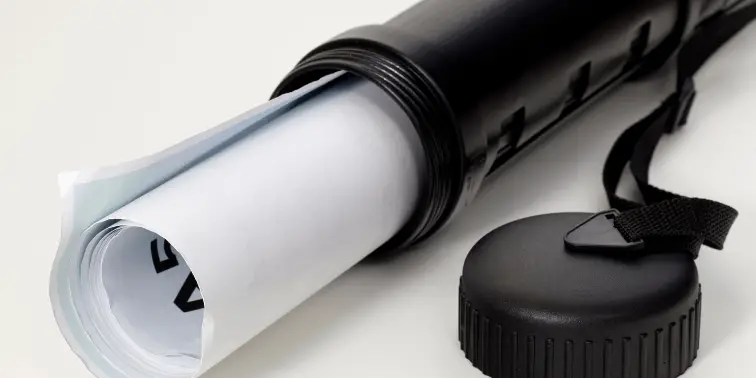Posters are one of the first things we use to decorate our walls when we’re young, but they are a popular choice for adults of all ages (although the content of the posters we choose may change over time).
They’re relatively inexpensive, and posters are made to cater to the fans of every movie, book series, sports team, celebrity, and any other interest under the sun, so there is always something for everyone.
Unfortunately, large sheets of paper — even nice, glossy paper — are easy to tear and damage. It can be intimidating to pack up posters when you’re getting ready for a move, but with a few key items and pieces of knowledge, you’ll be able to get all your favorite posters to your new home safely.
Sort Through Them
Let’s be honest: once something goes up on a wall, it doesn’t normally come down unless you have a very good reason, even if you lose interest in the subject matter. Now that you’re moving, take this opportunity to decide which posters you really want to keep.
How much you need to cut down, if at all, will probably depend on the move and on how long you’ve had the posters. Sometimes you don’t have enough space in the moving truck or on your new walls to justify keeping every poster you own.
Other times, you’ve just outgrown the poster. If you’ve had it on the wall of your childhood bedroom since sixth grade, for example, you may not be interested in bringing it to your college dorm. Or perhaps you’ve reached the age when that black light poster doesn’t seem as cool as it once did. Either way, it’s probably time to let those go.
Pull out the ones you aren’t interested in anymore or don’t have room for. If you know someone else who would want them, that’s great, but don’t be afraid to throw things away, too. It really is just paper.
Get What You Need
We’re assuming that your posters are unframed. Framed posters can be treated like any other framed artwork and packed accordingly (which is a whole other moving guide). For packing unframed posters, you’ll need:
- Acid-free packing paper
- Poster tubes
- Masking tape
When you have everything ready, it’s time to start packing.
Pack the Posters
Be careful when removing unframed posters from your wall. Depending on how much thought you gave to future you when hanging the posters, it could be very simple or very risky.
Posters mounted with any strong adhesive tape, in particular, are easy to rip when taking them down, so go slowly and use extreme caution. (Having your walls in great shape is key to getting your deposit back)
Put a sheet of packing paper that is slightly larger than the poster but no wider than your poster tube on a hard surface, like a table or hard floor. Lay the poster on top of it, face up, with the bottom edge lined up with the edge of the packing paper.
Roll the poster and packing paper up together, with the packing paper on the outside. When the whole thing is rolled up, use a piece of masking tape on the packing paper to keep it from unfurling.
Many guides on packing posters say to twist the ends of the packing paper “like a piece of candy”. Don’t do this!
There is no reason for it, and it just risks twisting the ends of your rolled poster. All you really need to do is keep an eye on your poster as it goes into the tube, so that you know it isn’t sliding out of the packing paper. If you rolled it tightly enough, it won’t.

Try to fit the poster tube as closely as possible to the size of the rolled poster. This will reduce the likelihood of the poster moving around in transit and save on space in the truck. The end caps should stay tightly in the tube on their own, but if you’re worried, you can tape them down, too.
Unpack the Posters
By the time you get to your destination, the posters may be curled from spending a long time rolled up. Lay each one on a flat surface and weigh it down with something flat and heavy, like books, on the corners. After a few hours, it should be ready to hang again.
Consider using removable mounting putty or poster tape to protect your posters (and your wall), so that they are even easier to take down and pack the next time you need to.


